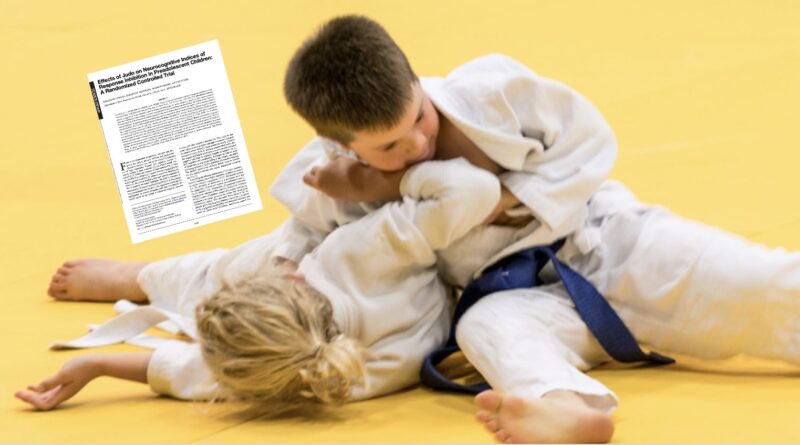Effects of Judo on Neurocognitive Indices of Response Inhibition in Preadolescent Children

ABSTRACT
INTRODUCTION
Although exercise is suggested to benefit inhibitory control in children and adolescents, the current evidence is limited to exercise-induced improvements for its interference control subtype. In contrast, the potential of exercise to facilitate response inhibition still remains unclear. However, the neurocognitive profile of martial arts athletes suggests that this sports category promises benefits for cognitive control processes related to response inhibition. The present randomized controlled trial therefore examined the effects of judo on behavioral and neurocognitive indices of response inhibition (N2, P3a, P3b) in preadolescent children.
METHODS
Participants (N = 44) were randomly allocated to a martial arts group, who completed 120-min judo per week over 3 months, and a wait-list control group. At baseline and follow-up, participants completed the Movement Assessment Battery for Children-2 and a physical work capacity test on a bicycle ergometer at 170 bpm (PWC170). In addition, a computerized Go/NoGo task with simultaneous electroencephalographic recordings was administered.
RESULTS
In the martial arts group, a greater decrease in NoGo error rate and a higher increase in NoGo N2 amplitude were found in comparison to the control group. These behavioral and neurocognitive changes were correlated. In contrast to N2, the P3a/b amplitude, Movement Assessment Battery for Children-2, and physical work capacity test at 170 bpm did not change differently between groups over the intervention period.
CONCLUSIONS
The present findings indicate that judo promises benefits for response inhibition that are independent of alterations in motor skills and cardiorespiratory fitness. A change toward more effective conflict monitoring seems to underlie this improvement in cognitive performance.
Download the full article here FREE.


Pingback: Thai Massage
Pingback: เช่ารถตู้พร้อมคนขับ
Pingback: ปั้มติดตาม
Pingback: รับออกแบบร้าน